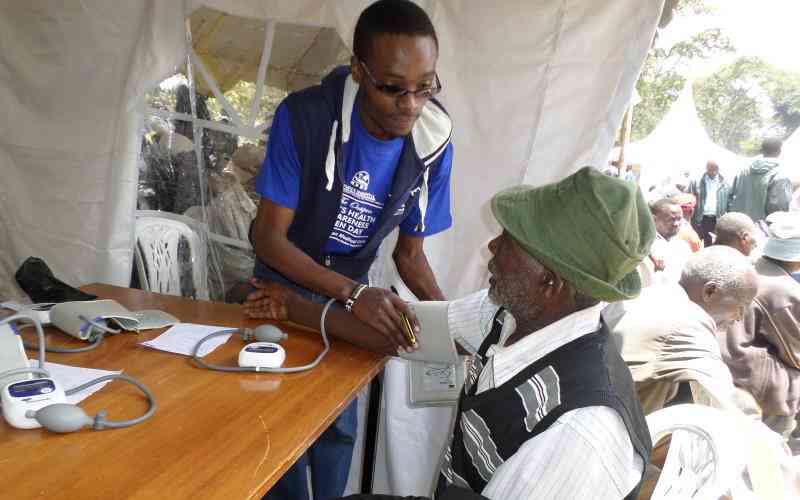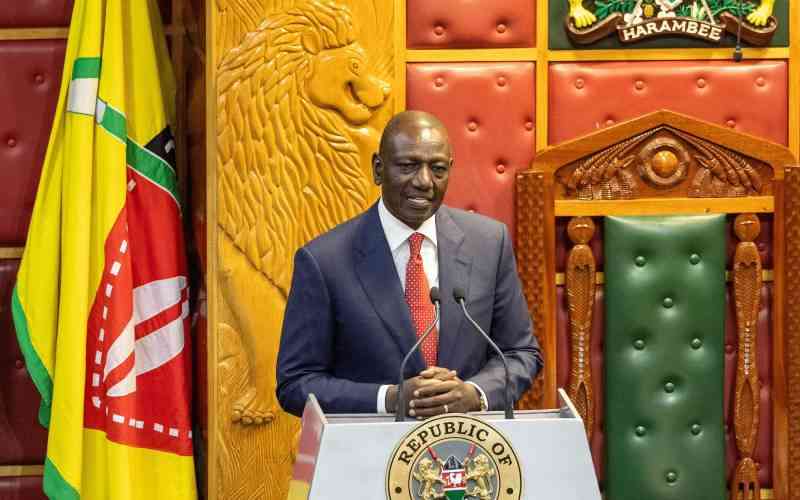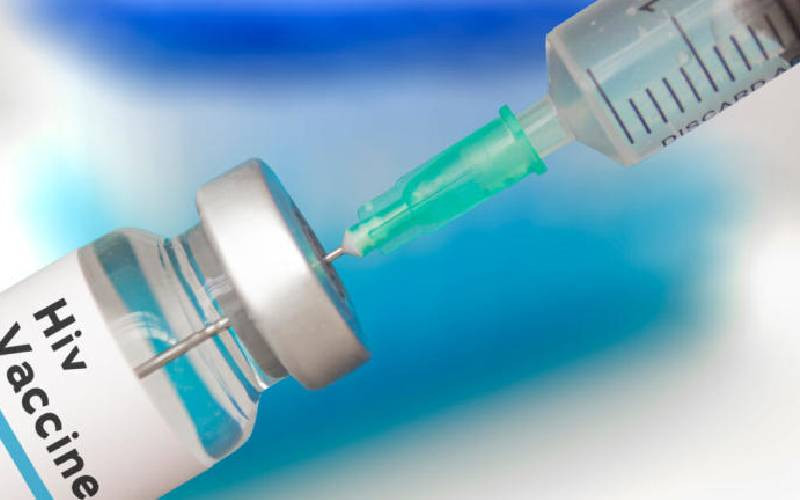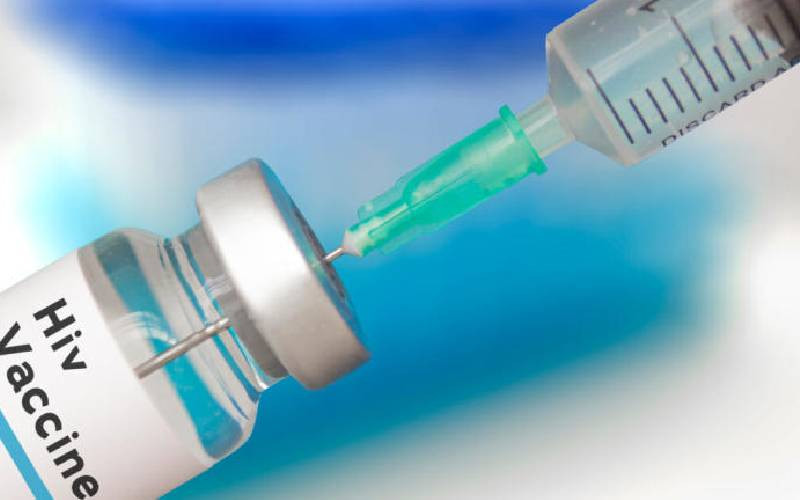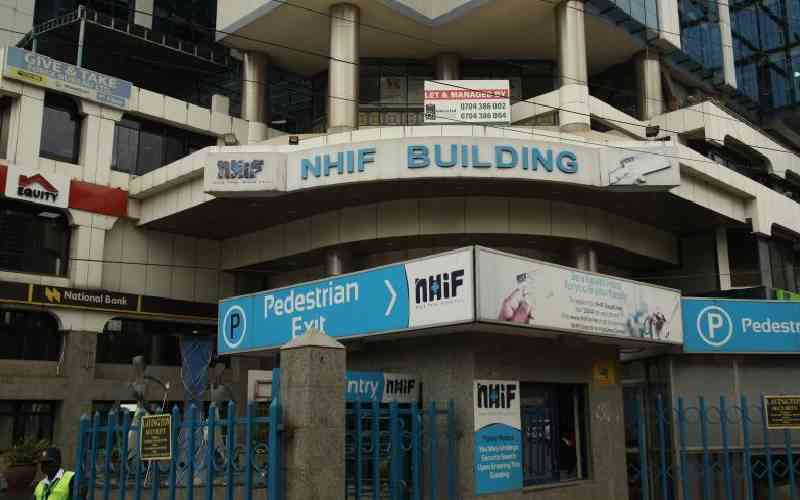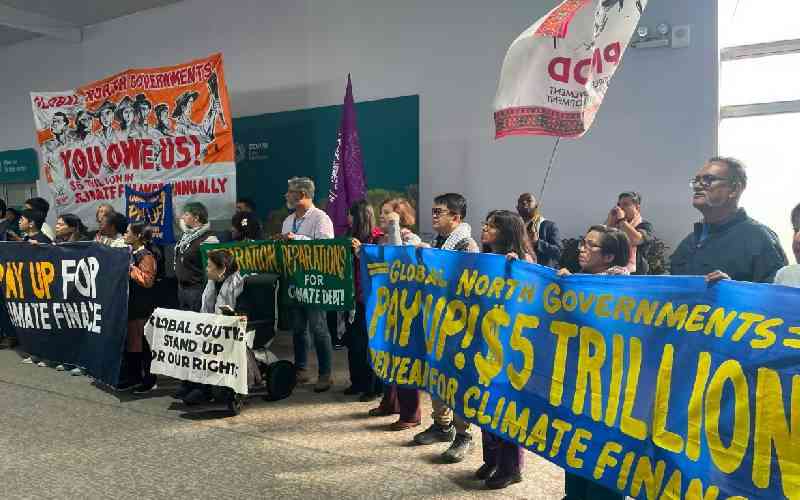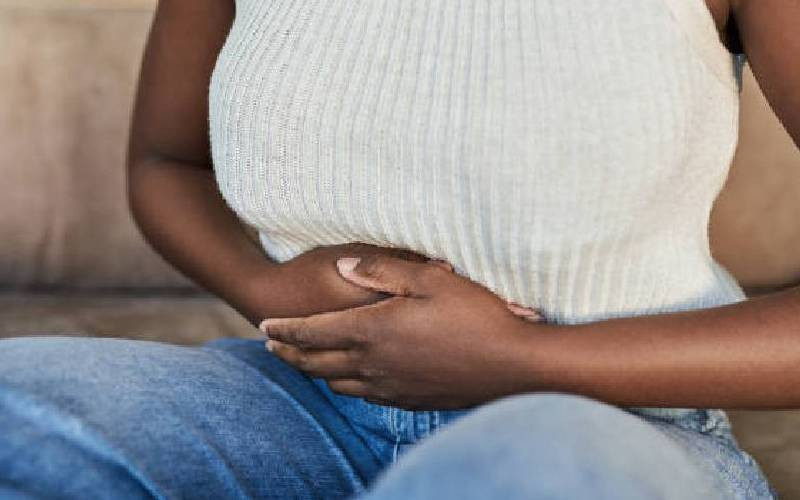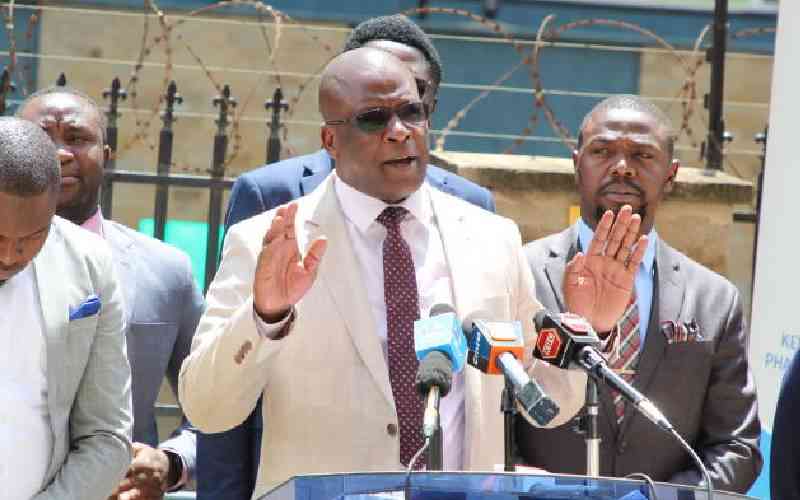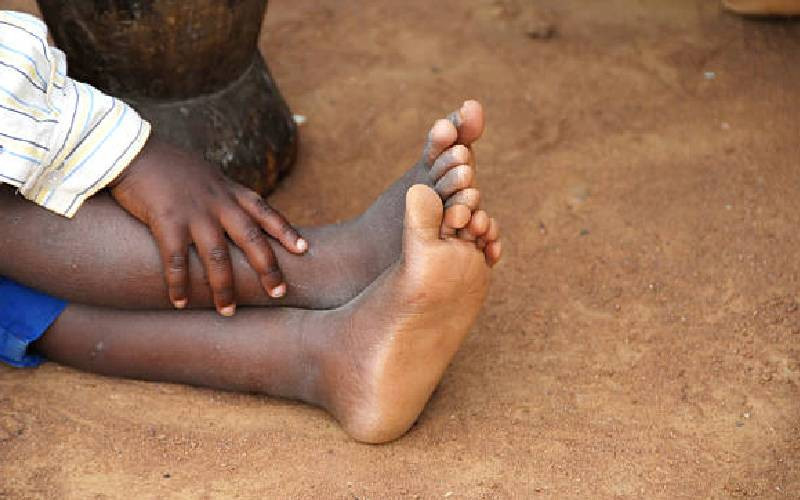
She cannot afford to cry under the burning sun, for she cannot let the tears soak her eyes. But as she walks under the scorching sun, bare-foot Pauline Atabo moves slowly, each little step her moment of defiance against the pain that seers her bones.
Her two children whose legs are twisted and bowed cling to her. Looking exhausted, the little ones stumble as they struggle to keep in step in their uneven walk. Their mother keeps an eye on them, her heart breaking with each fall.
“I am in pain, but more hurt by my children’s encounter at such a tender age. I am forced to wake up so early in the morning to take them to school because they cannot walk steady and fast like other children,” Atabo begins, as she narrates her struggles to The Standard.
The condition, she says, has reduced her to a laughing stock in the village. She is termed as a ‘bad omen’.
“I feel embarrassed seeing my children struggle to walk. This has affected my self-esteem,” she adds.
She says her children were born normal, but at the ages of three, they developed weak bones only for their legs to get twisted and bowed. Their arms are also slightly warped.
The mother attributes the condition to consumption of water from Lake Turkana that has high salinity levels.
In her tribulations, Atabo’s third born son, Samuel, who supports her in taking care of the little ones, is a welcome angel that she appreciates.
“My mother is in a lot of pain. She takes herbal medicine but has not gotten any better,” says Samuel. He adds, “It pains me to see my young siblings walk with difficulties and cry because of pain. I cannot imagine having them grow with such deformities.”
“I literally carry them to school. This is why it pains me so much, because they can also not play with other children. This makes them isolate themselves from their age-mates,,” observes Samuel.
In the neighbourhood, Helen Akabu sits beneath the shade of a tree, wiping the sweat from her brow after a long day at work, cutting trees to make ends meet.
For this single mother in Katula Village, life has been a series of uphill battles. Yet nothing is more painful than watching her young son struggle with bow legs.
Her son, once energetic and full of life, gradually developed the problem as his legs began to curve outwards. later one of his legs was hurt by his peers while playing. The condition of the Grade Five pupil has made even the simplest activities, like playing with other children, a dangerous endeavour.
Desperate for help, she took him to a local traditional herbalist, hoping for a cure. But the treatment did little to ease her boy’s pain.
Her son’s journey to and from school, however, is another challenge in itself. While other children rush ahead, he struggles behind, limping on his fragile legs. “He takes so long to get to school, and by the time he arrives, the lessons have already begun,” regrets Helen.
The lateness has taken a toll on his academic performance. “He arrives late and is tired by the time he reaches class,” Helen adds. “His grades have dropped because he misses so much.”
Helen’s days are long and exhausting, spent working hard just to provide for her family, but her real pain lies in the helplessness she feels as a mother.
“I don’t know how to help him,” she says, adding, “I wish there was more I could do to ease his struggles.”
The struggle of the two families is not in isolation. In the remote Katula village and several others scattered along the shores of Lake Turkana, the struggle for survival goes beyond daily needs. It’s a fight against a silent, yet saline health crisis that continues to cripple both children and adults alike.
Weak bones and bow legs have become all too common, but with limited access to healthcare, many are left to suffer in silence.
Michael Epem, a dedicated community health promoter in the area, reveals that cases of children with bow legs in the area are common.
“It is an issue we suspect is linked to the consumption of local water. The numbers keep increasing, but more worrying is lacking a solution to the condition,” says the health promoter.
But even with the suffering, Epem shares the heartbreaking realities of poverty and neglect. Many of the affected are unable to afford transportation to the nearest hospital in Lodwar, which is located tens of kilometres away.
“People here suffer in silence. They can’t walk to hospitals because of their bone problems, and also cannot raise money for transport,” Epem explains.
The condition, he notes, does not affect only children. Adults, too, are grappling with weak joints and difficulty in walking, which severely impacts their ability to work or even perform daily tasks. Despite the physical and emotional toll on the community, Epem continues to sensitise households on best nutrition and having their children vaccinated.
“We urge families to bring their newborns for vaccinations to boost their immunity and protect them from childhood diseases, even if we can’t immediately fix the bone issue,” he says.
Rodgers Wasike, an Education Officer with Save the Children, notes that the organisation has established a number of disability cases in children linked to weak bones, and bow legs, and calls for investigations from the Ministry of Health, and researchers, to establish the main cause.
Dr Ezekiel Ekuwam, Chief Officer in the department of health, admits that a number of cases of children developing bow and twisted legs have been reported in Turkana County. He attributes that cases to consumption of salty waters and minerals from the lake that people take in more quantities than medically and nutritionally advisable
“Consumption of water from the lake, compounded with sand, is what is causing weak and fragile bones in children,” says Ekuwam.
The official adds that more investigations are required, with the long term solution being supply of clean tap water to communities.
 The Standard Group Plc is a multi-media organization with investments in media platforms spanning newspaper print
operations, television, radio broadcasting, digital and online services. The Standard Group is recognized as a
leading multi-media house in Kenya with a key influence in matters of national and international interest.
The Standard Group Plc is a multi-media organization with investments in media platforms spanning newspaper print
operations, television, radio broadcasting, digital and online services. The Standard Group is recognized as a
leading multi-media house in Kenya with a key influence in matters of national and international interest.

